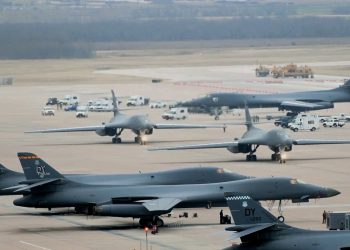UK Ministry of Defence,
RAF and Royal Navy support to the front line is being strengthened with the signing of two contracts to sustain a range of combat, support and training aircraft.
The first contract, worth more than £100m, has been awarded to BAE Systems to support electronic warning and defensive protection equipment fitted to RAF Tornado and Royal Navy and RAF Harrier aircraft.
Work will be carried out at Sealand in North Wales, Edinburgh, Luton, RAF Cottesmore in Rutland and RAF Marham in Norfolk, and will help to secure jobs at those locations. It is expected to result in savings of about £20m by bringing together a variety of support services under existing major aircraft support contracts.
The second contract, worth £15m, will see Babcock Defence Services supply wheels, tyres and brake assemblies used on the VC10, Harrier, Nimrod and Hawk aircraft from a new facility at their site near Newark, Nottinghamshire. The contract has been awarded following a competition by Prime Contractor BAE Systems and is expected to achieve £1m of savings up to 2018.
Minister for Defence Equipment and Support Quentin Davies said:
“Partnering support contracts with industry are reaping benefits for the front line by making more aircraft available in a shorter timeframe and at lower cost. This is good news for the front line and good news for British industry.”
The projects have been signed under the Commodity Availability Procurement Strategy (CAPS).
Group Captain Chris Daykin, Defence Equipment and Support CAPS Director, said:
“CAPS will make the most of existing aircraft availability contracts by simplifying the process, achieving better value for money and assuring operational output.
“We now have a proportion of the potential scope for CAPS on contract and these two milestone contracts should act as a significant springboard in helping to deliver future benefits under the programme.”
Under CAPS, the MOD is working with industry to replace a mix of in-house and contracted services by bringing more aspects of support under existing contracts, primarily with BAE Systems and Agusta Westland. Both of today's CAPS contracts amend and broaden out existing contracts for the support of RAF aircraft, improving aircraft availability and achieving better value for money.
Ultimately the introduction of CAPS contracts could extend to cover some 73,000 items of equipment.








